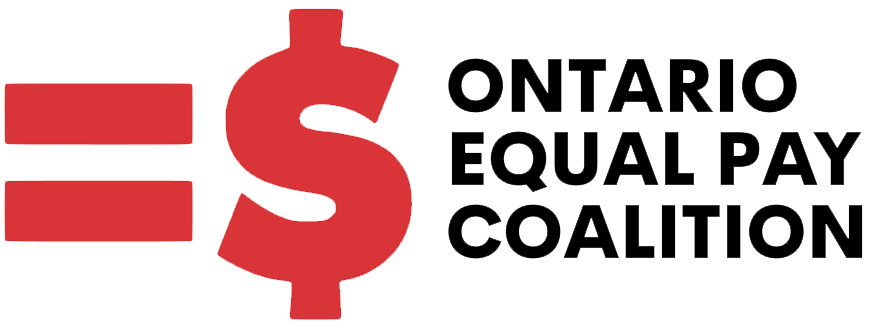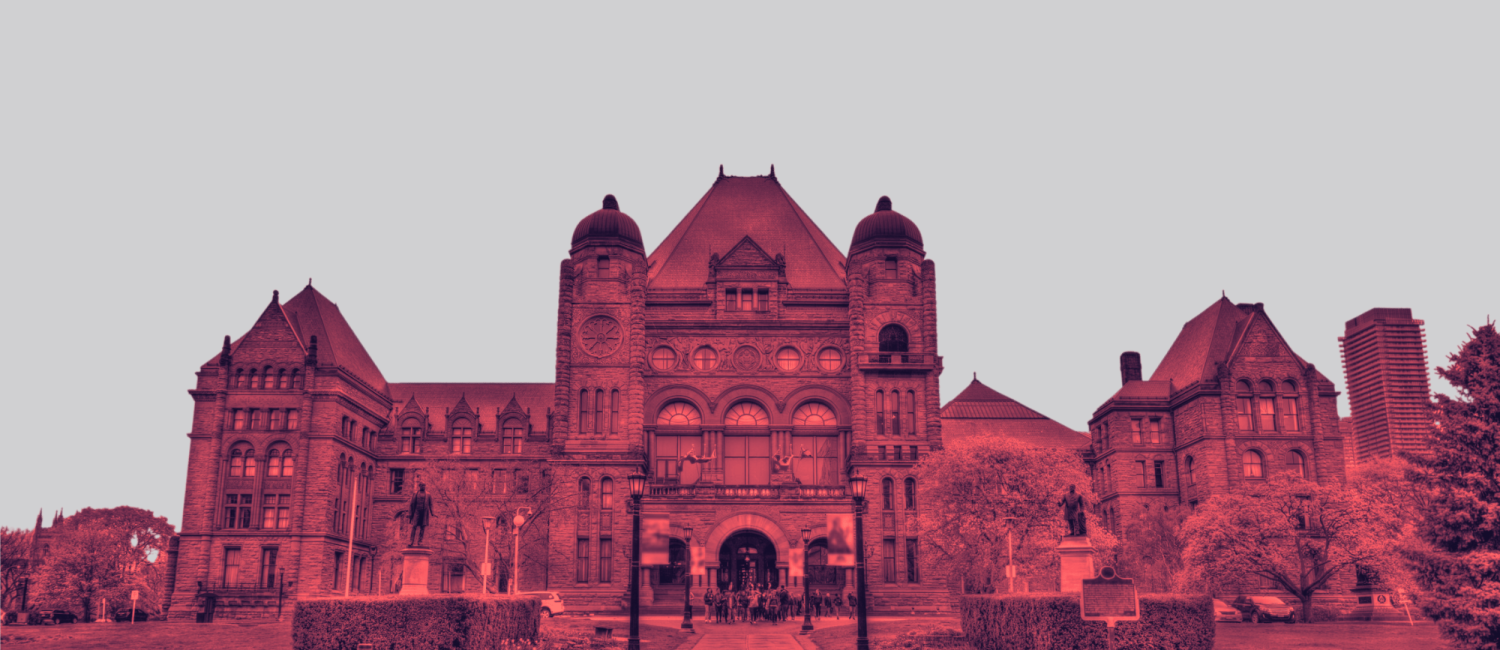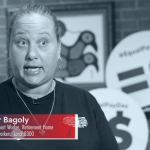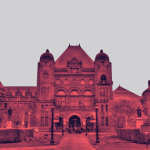April 16, 2024
AN OPEN LETTER TO ONTARIO POLITICAL PARTY LEADERS
TAKE ACTION TO CLOSE THE GENDER PAY GAP
Dear Premier Ford, Office of the Premier,
c/o Caitlin.Clark2@ontario.ca and zoe.knowles@ontario.ca
Leader of the Official Opposition, Ms. M. Stiles, MStiles-QP@ndp.on.ca
Ms. B Crombie, Leader, Ontario Liberal Party, info@ontarioliberal.ca
Mr. J. Fraser, MPP, Ontario Liberal Party legislature, jfraser.mpp.co@liberal.ola.org
Mr. M. Schreiner, Ontario Green Party, mschreiner@ola.org
April 16, 2024 is Equal Pay Day. Recognized globally, Equal Pay Day is a non-partisan day of international conversation and action to advance women’s equality and close the gender pay gap.
We write to request that you take immediate action to stop the underfunding and privatization of our valuable public services and support women’s economic equality in Ontario. The time for a renewed investment in our community services is now.
The Ontario Pay Equity Commission, the government’s own pay equity watchdog, reports that the gender pay gap, on average, is 32%. The gender pay gap has remained stagnant for almost three decades. This is unacceptable.
The average does not reflect the real depths of discrimination in Ontario. The gender pay gap for First Nations, Inuk (Inuit) and Black women is 42%. This means they earn only $0.58 for every dollar a man makes. Indigenous and Black women must work an additional 153 days to earn what an average man makes in one year. Arab women are the lowest-paid women in Ontario’s labour market and face a shocking 47% wage gap, meaning they earn only $0.53 for every dollar a man makes.
Equal Pay Day for racialized women is in June 2024 – racialized women work an additional half-year to make what the average man makes in a year.
Women work in jobs taking care of people and the community. Women work in public community services such as childcare, social services, education and health care. This care work is essential. By caring, helping and teaching people, these workers ensure our societies can function. Our communities cannot thrive without women’s work in these critical public services.
VITAL COMMUNITY CARE WORK IS UNDERVALUED AND UNDERPAID
The conditions of women’s work are the conditions of care and are the conditions that determine the quality of life in our communities.
Yet those doing this work, mostly women and many racialized, are drastically overworked, undervalued, and underpaid. Women working in the vital caring and community sectors face an additional barrier when it comes to the wage gap. On top of the wage discrimination they face because female-dominated work is undervalued, their pay is further deflated because the care work they do was traditionally done by women for little or no pay at home and through charities. These services are still not funded as the vital public services they are. The “care penalty” and the “charitable sector penalty” are key factors that drive the gender pay gap.
Pay equity is not a privilege or a frill. It is the law. Discriminatory pay gaps are a violation of human rights. Human rights transcend all political parties. Human rights enforcement is not a partisan issue.
REVENUE CUTS EXTENDS THE CARE PENALTY
However, since 2018, Ontario’s inflated-adjusted per capita support for community and social services in Ontario has been cut by 12.1%. Government revenues have been significantly reduced through a series of cuts to various fees and taxes that total more than $8.2 billion per year.
To make matters worse, since 2018 Ontario has spent less on valuable public services than actually budgeted. As of 2022, Ontario has spent less money on public services than any other province in the country. Ontario spent about $11,452 per person. B.C spends over $14,000 per person on public services. Saskatchewan spends more than $16,000 per person.
The March 2024 budget offered no relief or recognition of women’s vital contribution to Ontario’s communities. Women won the important court victory to stop Bill 124’s unconstitutional wage restraint on women’s public sector wages. But, the government has not increased revenues in community and social services to account for increased demands on services and to pay women human rights-compliant wages.
In addition, as inflation and the cost of living continue to soar. Ontario women are struggling to afford the basic necessities to support themselves and their families. The average wage gap for women has ballooned to roughly $9,400 per year. At this rate, the gender wage gap is the equivalent of 4.7 months rent for a two-bedroom apartment and 15.4 months of average food costs in Ontario.
The lack of funding to Ontario’s vital community and social services creates wage discrimination. Underfunding reinforces and extends the care penalty in these critically important services.
STRONG PUBLIC SERVICES NARROW THE GENDER PAY GAP
Strong public services play a critical role in narrowing the gender pay gap and promoting economic equality for women.
Strong public services provide women with access to affordable childcare, healthcare, education, community services to support victims of domestic violence and other essential resources that allow them to work, advance in their careers, and support their families.
However, the funding cutbacks and privatization threaten to widen the gender pay gap. When public services are privatized, they are often operated for profit, which can result in higher costs and reduced access to essential services for low-income women and racialized women. Privatization often leads to lower wages and benefits for workers, the majority of whom are women.
We urge you to reconsider the current direction.
Prioritize strong public services that support women’s economic equality. Invest in programs and policies that enable our communities to flourish:
- ensure that affordable public childcare is delivered by childcare workers who are paid a living that respects their professional skills;
- ensure that all workers are guaranteed a minimum of 10 employer-paid sick days and;
- ensure access to quality healthcare and education for all women.
We urge you to take immediate action.
To recognize Equal Pay Day, please respond and tell us what concrete steps you will take to close the gender pay gap and stop the discriminatory care penalty against women.
We look forward to your response no later than May 16, 2024.
Your sincerely,
Fay Faraday and Jan Borowy
Co-chairs,
Ontario Pay Equity Coalition




